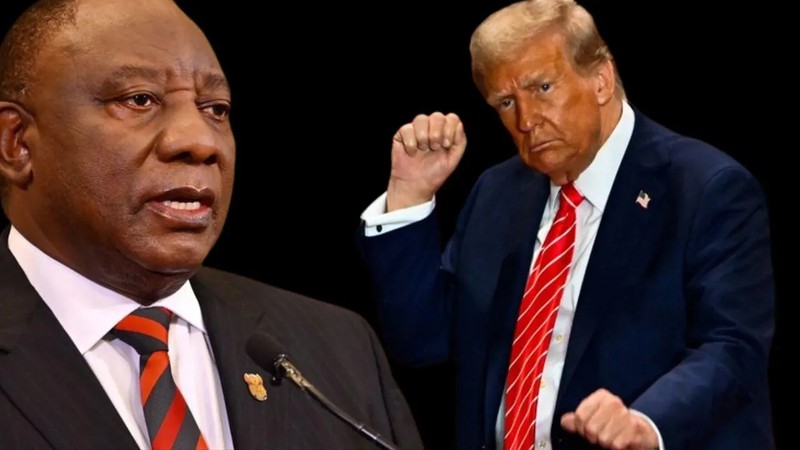This week’s meeting between President Cyril Ramaphosa of South Africa and US President Donald Trump is being closely monitored by the international relations stakeholders as they have emphasised its significance for trade relations and the broader South African economy.
Reflecting on the economic context, Andre Thomashausen, a Professor Emeritus for International Law at Unisa, indicated that South Africa’s access to the US markets was crucial because the trade balance with the US was nearly 100% positive and in favour of the South African economy.
Thomashausen said a total of R150 billion of exports will hang in the balance on Wednesday, a price too big to pay for postures of national pride.
“Imports from the US are insignificant compared to our exports to America, exactly the opposite of what is happening in our trade with China. But we also need to know that 55% of our agriculture exports to the US are produced in the Western Cape,” he said.
“If the negotiations about reintroducing a zero import tariff for our agricultural products fail this coming Wednesday, the Western Cape will be severely hit, and a massive loss of employment can be feared.”
Ramaphosa’s official visit to the US comes as diplomatic relations between Pretoria and Washington D.C. continue to deteriorate.
The latest development saw 49 members of the Afrikaner last week accepting Trump’s offer to migrate to the US as refugees as they fear persecution against them, a claim that the South African government has vehemently denied.
Christo van der Rheede, executive director of the FW de Klerk Foundation, described the meeting as a welcome opportunity for constructive dialogue and cooperation between two nations that stand to gain from stronger ties.
Van der Rheede said the spotlight should be particularly on the trade front and matters related to strategic geopolitical cooperation.
“On the trade front, South Africa remains the US’ largest trading partner in Africa. Trade between the two countries already amounts to more than $20bn (R361bn). There are also approximately 600 US companies operating in South Africa. These companies employ up to 200 000 people,” he said.
“On a geopolitical level, President Ramaphosa plays a highly strategic role behind the scenes. His ties with both Putin and Zelenskyy, as well as the fact that he has the ear of Iran and Hamas, put him in a unique position to work with the US to help bring peace to conflict-torn parts of the world.
“The world faces significant challenges: poverty, underdevelopment, famine, and crime. Statesmanship and visionary leadership are needed to tackle these challenges together.”
However, not all observers are optimistic about the meeting’s potential in mending bilateral ties.
Dr Noluthando Phungula, an international relations expert from the University of KwaZulu-Natal raised concerns regarding the political tensions marking the relationship between Pretoria and Washington D.C.
Phungula said the Trump administration’s recent position on South Africa concerning an International Court of Justice case against Israel and their controversial move to accept Afrikaners as refugees due to alleged systemic racial persecution added layers of complexity to the dialogue.
She said there was a need to deal with the matter carefully, particularly following the sanctions from the US in a number of areas including trade, health, and defence.
“Calling out the US loudly has cost the country sanctions, particularly threats not to renew Agoa, the cessation of US development aid, and the dismantling of USAID operations in South Africa,” she said.
Theuns Eloff from the Afrikaner Leadership Network said that the meeting was important and expressed hope that a plan to improve relations will come out of it.
“One meeting won’t be enough to resolve all issues but we hope a plan will come out for other ministers in the different sectors of the economy to meet with the Trump administration to resolve issues around tariffs and trade relations,” he said.
“We don’t believe that emigration to America is a solution to the plight of the Afrikaner community. We want our concerns to be addressed but we want it to be made clear in this meeting that there is no genocide against the Afrikaner and no land exploitation against the Afrikaner community, and that 49 Afrikaners who opted for refugee status don’t represent the whole community.”
Visit: www.businessreport.co.za
